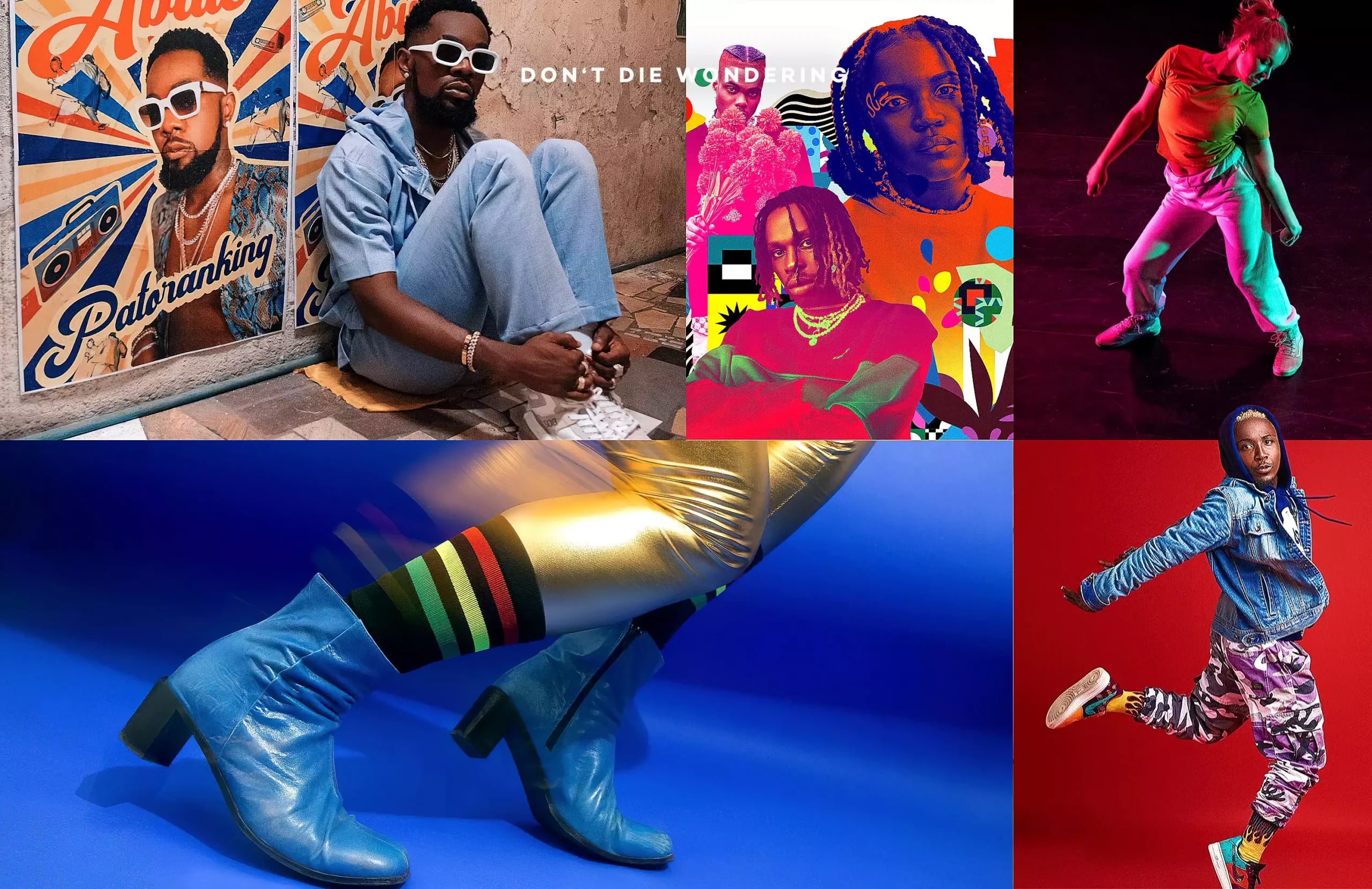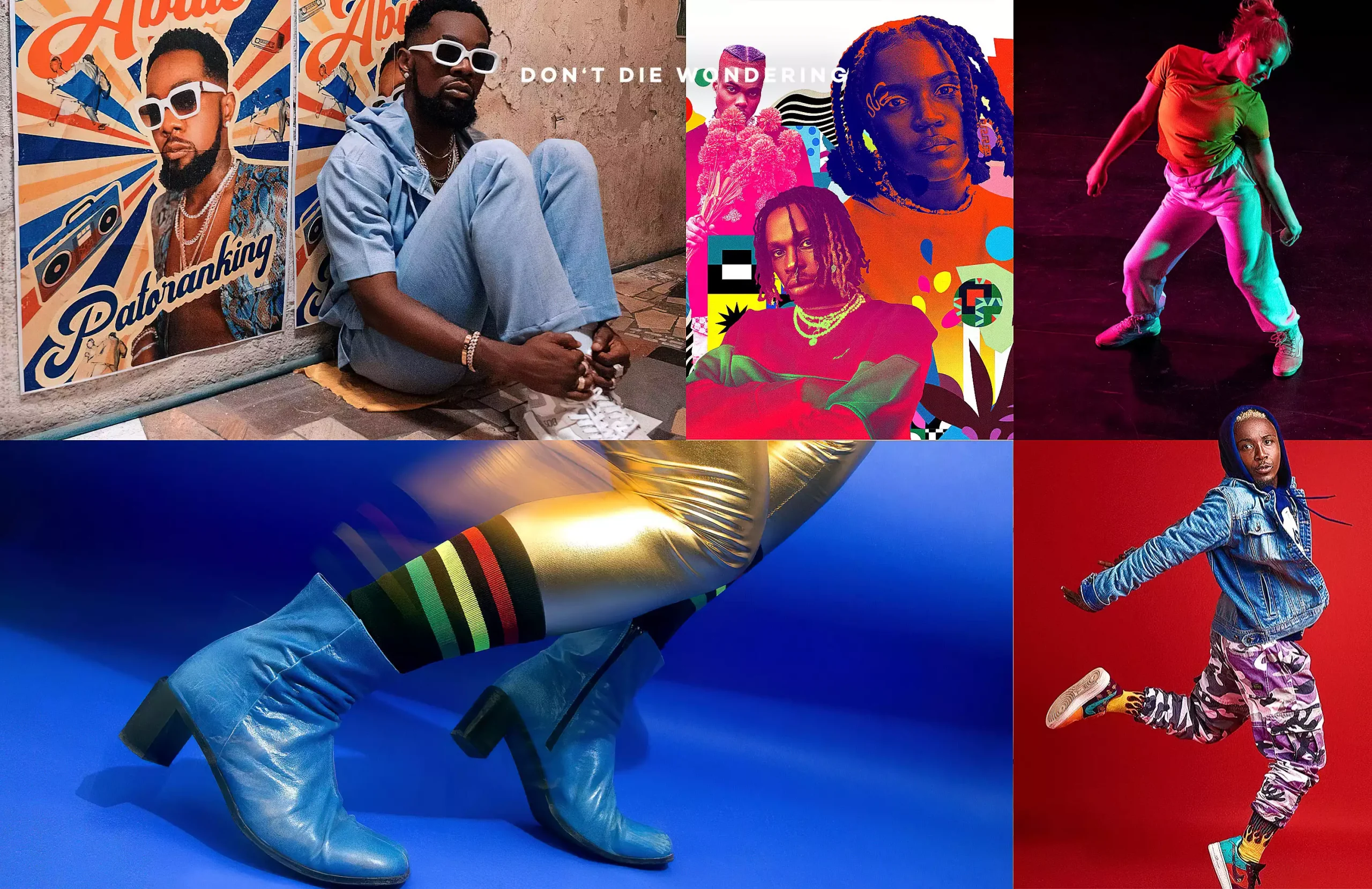FROM Lagos to London to Los Angeles, Afrobeats has taken the world by storm. The likes of Burna Boy and WizKid are championing the sound and presenting it to a global audience like never before, blowing up clubs and gaining huge streaming numbers in the process.
The stimulating, upbeat music style is synonymous with revelry and just positivity in general. A genre defined by its energetic, bouncy beats and West African-inspired melodies, Afrobeats commonly has Pidgin English and Jamaican patois weaved into its lyricism, with UK artists, in particular, blending Caribbean and African sounds to create this wildly popular hybrid genre.
You don’t need to look much further than the most-streamed artists of the 2010s to realise how prevalent Afrobeats has become in the mainstream. Drake’s 2016 song One Dance featuring Nigerian superstar WizKid reached number one in 15 countries and today is the sixth most-streamed song on Spotify of all time with 2.2 billion streams.
The exponential speed at which Afrobeats has risen to the pinnacle of global sound is what makes the artists doing the work behind the scenes all the more impressive. Not to be mistaken for Afrobeat, a highly politicised funk and jazz style pioneered by Nigerian artist and activist Fela Kuti, Afrobeats has a much more relaxed, jubilant vibe to it and stems from Nigeria in the early 2010s – a mere decade ago.
D’Banj’s Oliver Twist in 2012 is said to be the first Afrobeats song to reach the mainstream reaching number 9 in the UK charts, with Fuse ODG not far behind with his tracks Antenna and Azonto.
“This is music that has come a long and joyous way in a very short time,” says Nigerian-American author Teju Cole. “Dance to it—note its persistent tone of joy—then come back and listen to it.”
London quickly became Afrobeats’ second home after Lagos. The UK capital’s diverse population features a heavy West African and Caribbean presence, creating the perfect melting pot for the genre to grow. Young black British artists were adding their own style and finesse onto the music – artists like J Hus and his producer JAE5, NSG, Burna Boy and Yxng Bane are now leading exponents of the genre not just in the UK but worldwide.
As the turn of the decade approached, the genre hit stratosphere levels of popularity and eventually cemented itself as the leading sound of popular UK music along with dancehall. Even UK drill artists feel obliged to put an Afrobeats/dancehall track on their albums now.
They are undeniable crowd-pleasers – everyone wants to hear Nines’ Airplane Mode or Young T and Bugsey’s Don’t Rush go off in the club at the weekend. The positivity that comes with the music provides people with the perfect escapism for a night out.
And it’s not just culturally that these artists are being celebrated. Commercially the genre is being recognised by labels, festivals, award shows and more – Burna Boy and WizKid both won big at the 2021 Grammys in Los Angeles last year for Best Global Music Album and Best Music Video respectively, with the latter twice nominated at the 2022 awards.
Growing demand for the genre in the US means that Afrobeats artists on the come up are most certainly in the right place at the right time. For names like Tems, Davido, Tiwa Savage, Mr Eazi, Yemi Alade, and of course WizKid and Burna Boy, the only way is up right now.
SEE MORE: How TikTok Became The Number One Music Discovery App


